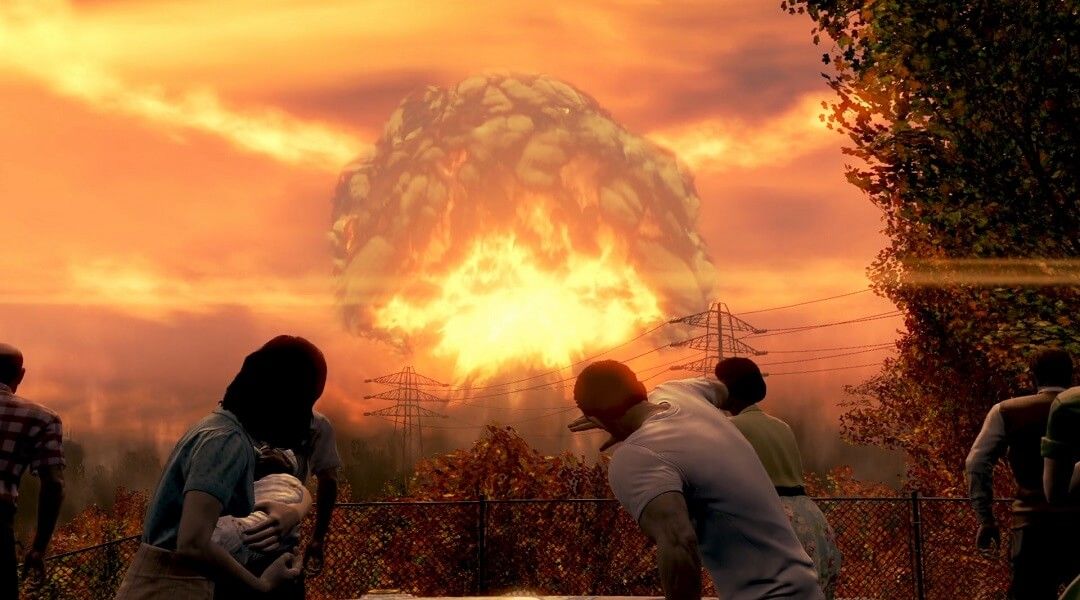Fallout 4 is a truly great game - but why are reviewers and fans alike so eager to give it a pass on the same issues that derail other industry efforts?
I'm going to preface this by saying that Fallout 4 has its hooks in me the same way that The Witcher 3: The Wild Hunt did earlier this year. That isn't unexpected, of course: both games are massive in scope, feature deep skill trees and gameplay mechanics, and are built from the ground up to showcase a gorgeous, unique environment that houses an equally engrossing story. By all accounts, I think Fallout 4 is a distinct improvement, the evolution of many of the things that made Bethesda's earlier efforts in the Wasteland equally exciting.
That doesn't make it perfect, though. Fallout 4 marks the return of the dreaded game-breaking bug, a feature that's become a central element of Bethesda's open-world RPG efforts in recent years. These bugs aren't numerous enough to consider the game broken at launch, nor are they evidently enough to stop me scavenging my way through post-apocalyptic Boston. They are, however, enough to make me wonder why the gaming industry and its fans measure Bethesda games in a different way than other titles.
Think about it. Gamers have lovingly dismissed the back-breaking glitches in Fallout 4 as quirks of Bethesda's processor-taxing world building even though as recently as last month the community was incensed over Assassin's Creed Syndicate having similar issues. Fallout fans often post screenshots of characters who have accidentally fused with a wall, the floor, or a tree that was accidentally rendered upside down in the first place as sources of amusement rather than ire. What is it that makes us so ready to forgive Fallout 4 while we chastise Destiny's glitches in gameplay?
I believe at least some of this attitude is rooted in Bethesda's knack for creating absolutely massive game worlds. Ever since the release of The Elder Scrolls 3: Morrowind, Bethesda has become a studio defined by its ability to craft meaningful content that lasts hundreds of hours inside an environment that feels alive. Morrowind represented a revolutionary concept in game design that was equal parts ambitious and fun, and as such, the gaming population as a whole was inclined to forgive the many glitches and errors that were seen as impossible to avoid for such a new and exciting project.
Morrowind was a long time ago, though - long enough to feature in an Elder Scrolls anthology, at least. Yet we're still treating Bethesda titles like they're wildly innovative, industry-altering games rather than the natural progression of what the developer started in 2002. Fallout 4 is an impressive addition to open-world, sandbox-style RPGs, but it isn't reinventing the genre. In fact, apart from the changes that have come with increasingly powerful technology and larger development budgets, the core concepts of Fallout 4 are nearly identical to the ones that drove most of Bethesda's properties since 2002.
Fallout 4 is the product of nearly 13 years of learning how to make good, compelling open world games. Game-breaking bugs aren't cute anymore: they're something that should've been addressed during development, especially those that occur with any frequency. Obviously, as Bethesda continues to create worlds that are bigger than the last ones they made, it stands to reason that it also gets increasingly difficult to test the games for bugs.
But, honestly, if the rumors about Fallout 4's 400 hours of content are true, I'm not even going to see half of that, and I'm willing to bet a number of other gamers won't either. Instead of constantly aiming for bigger, perhaps its time titles like Fallout 4 aim for better - I'd be just as excited about 200 hours of gameplay if it meant I didn't have to quicksave every 5 minutes for fear of a crash or glitch that renders my character immobile.
Fallout 4 is still one of my favorite titles of the year, and the positives of the game do still outweigh the negatives that accompany these kinds of bugs. However, its time that the video game community holds all developers equally accountable for the glitches that can hinder their games. Even if it means we have to give up hours of content, I think the hours of headaches saved from preventing bugs that can erase large chunks of unsaved gameplay more than makes up for it. Until then, I'll maintain the right level of "should I save my game?" paranoia while playing a Bethesda title like Fallout 4 – somewhere between the fear of a Deathclaw being inexplicably behind me and the anxiety over what might happen if that Deathclaw accidentally spawns underneath the surface beneath my feet instead.
Fallout 4 is currently available for PS4, Xbox One, and PC. Check out another look at the apocalypse in Game Rant's Fallout 4 review.

